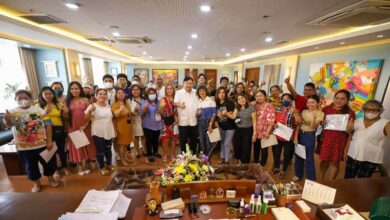
Youth Employment Key to Poverty Reduction and Inclusive Growth
THE YOUTH IS THE HOPE of the future. And according to an Asian Development Bank (ADB) brief, they’re also the key to poverty reduction and the country’s inclusive economic growth.
The paper stressed the need to invest in the employment of young people. It also emphasized that youth who are unemployed, not receiving education or training (NEET), and slow in school-to-work transition is a challenge not only in the Philippines but also in the Southeast Asia and Pacific region.
The ADB brief also mentioned the persistence of youth in NEET rates in the country especially in Visayas and Mindanao. At-risk young people were mostly from low-income households with limited social networks. There are several factors that contribute to this persistence including lack of labor market information available, skills mismatch in the labor market, and not enough employment services for at-risk youth.
Investing in the employment of youth can help address the problem, according to the brief.
“Employment generation is valuable to inclusive economic growth. Young people are more vulnerable to low wages, insecurity, or lack of social protection. An effective transition to the labor market and access to decent employment will allow young people to use their energy and creativity to foster social cohesion and bring their families out of poverty,” it noted.
Additionally, the ADB Brief said that JobStart Philippines (JSP) has assisted young Filipinos in starting their careers and in providing opportunities that will help integrate them into productive employment. Skills enhancement was also supported through formal or technical training to make sure that the youth can meet the demands of the job market.
200 to 300 beneficiaries per local government unit (LGU) per year were involved in the JobStart cycle, which is conducted twice a year during April to May and October to November.
The JobStart cycle is a program that’s conducted twice a year during April to May and October to November. It starts with 200-300 beneficiaries per local government unit (LGU) per year. 50 LGUs are included and the target is 50,000 out-of-school youths by 2020.
As of December 2017, JSP has been implemented in accordance to the signed memorandums of understanding between the Department of Labor and Employment (DOLE) and 32 partner LGUs. Six more LGUs per year will join the program from 2018 to 2020.
Together with ADB, DOLE designed and developed JobStart Philippines in 2011. It’s a pilot project that aims to help at-risk youth become job-ready.
via Philippine News Agency / Leslie Gatpolintan




